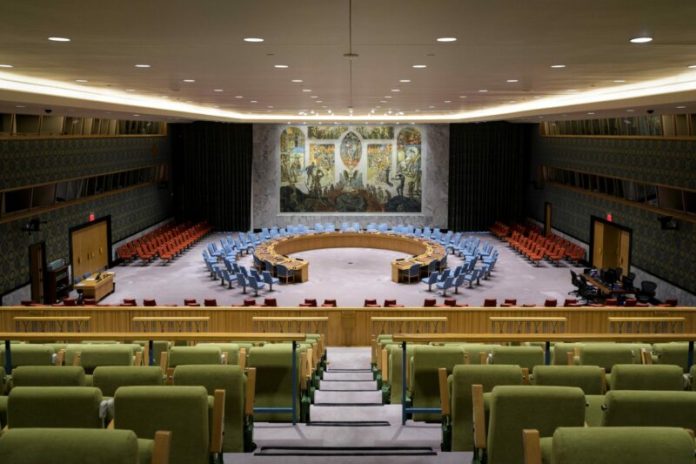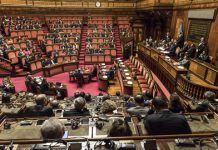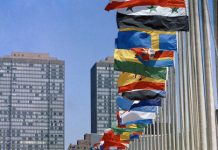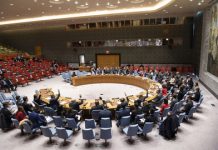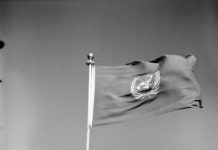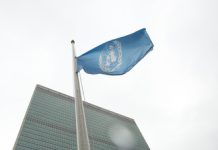Guterres calls for ‘serious dialogue’ to end surging violence in Syria
The UN Secretary-General has appealed for an end to the fighting in Syria, after a sudden and massive offensive into Government-controlled areas led by Hayat Tahrir al-Sham – which is sanctioned by the Security Council as a terrorist group.
António Guterres spoke outside the Council chamber on Thursday after it held a meeting on the Syria escalation, that began on 27 November just as a ceasefire started between Israel and Hezbollah armed forces in neighbouring Lebanon.
Mr. Guterres told journalists that he had stressed “the urgent need for immediate humanitarian access to all civilians in need – and a return to the UN-facilitated political process to end the bloodshed”.
Meanwhile, the head of the UN Commission of Inquiry on Syria has condemned the violence and said that the human rights probe he leads is continuing to document potential war crimes:
“Now our investigation is to understand how many casualties we are having in the conflict now with the intervention or the air forces of the Syrian Government and of the Russian Federation air force. We have seen several videos, for instance of aerial attacks against a hospital; this is very terrible because most of these aerial attacks don’t respect protected objects like schools, like mosques, like hospitals, like student buildings. This was one of the serious attacks, in a university that had some victims.”
The war in Syria began in 2011, sparked by a civil uprising against the Government. It has drawn in regional and international powers and defied the efforts of the Security Council and wider global community to bring it to an end.
The UN World Food Programme – WFP – says that more than 280,000 people have been displaced in Syria’s northwest, adding to years of suffering by civilians.
“WFP is scaling up to provide food wherever families are, but we urgently need support to meet soaring needs,” it said.
UN health agency green lights ‘groundbreaking’ TB diagnostic test
A potentially “groundbreaking” new test for tuberculosis – or TB – has been endorsed by the UN World Health Organization – WHO – as part of continuing efforts to eradicate one of the world’s leading infectious killers.
The test – called Xpert MTB/RIF Ultra – uses molecular analysis to detect the genetic markers of the bacterium that causes TB, in people’s saliva.
It is the first test of its kind to receive “prequalification” status from the UN health agency, meaning that it has passed stringent quality checks and can now be purchased by governments and UN agencies, as part of their TB eradication efforts.
Dr Yukiko Nakatani, WHO Assistant Director-General for Access to Medicines and Health Products, said this marked “a critical milestone” and underscored the importance of “such groundbreaking diagnostic tools in addressing one of the world’s deadliest infectious diseases.”
WHO said that accurate results from the test can be expected “within hours” while at the same time, the technology can also tell whether a suspected TB patient is resistant to first-line TB antibiotics, such as rifampicin.
This knowledge helps doctors to offer patients alternative, “second-line” treatments, such as bedaquiline and fluoroquinolones – although they are more expensive.
Tuberculosis is one of the world’s leading infectious disease killers, causing over a million deaths annually. Low and middle-income countries face the worst impacts.
World faces $23 trillion loss from land degradation
The world’s land degradation and desertification crisis might not make the news very often, but it could be an expensive error – and it could cost the world economy $23 trillion by 2050 – unless we do something about it, a UN summit has heard.
At the UN Convention to Combat Desertification in Riyadh, Saudi Arabia, the Executive Secretary of the summit, Ibrahim Thiaw, said that holding back land damage would cost around $4.6 trillion, which is a fraction of the predicted losses.
He urged business leaders attending the event to make the sustainable management of land a key part of corporate and financial strategy going forward, as a way to start tackling the problem.
Latest UN data shows that droughts have surged by nearly 30 per cent in frequency and intensity since 2000, threatening agriculture and water security.
Up to 40 per cent of the world’s land is classified as degraded, which means its biological or economic productivity has been reduced.
The summit has seen some early successes in unlocking international funding to tackle desertification and land degradation, with $12 billion pledged to land restoration efforts, principally by the Arab Coordination Group.
Daniel Johnson, UN News
Music composed and produced by Joachim Harris. All rights reserved
Source of original article: United Nations (news.un.org). Photo credit: UN. The content of this article does not necessarily reflect the views or opinion of Global Diaspora News (www.globaldiasporanews.com).
To submit your press release: (https://www.globaldiasporanews.com/pr).
To advertise on Global Diaspora News: (www.globaldiasporanews.com/ads).
Sign up to Global Diaspora News newsletter (https://www.globaldiasporanews.com/newsletter/) to start receiving updates and opportunities directly in your email inbox for free.


